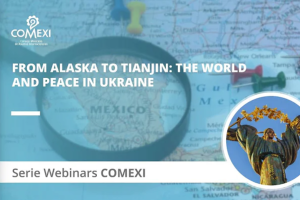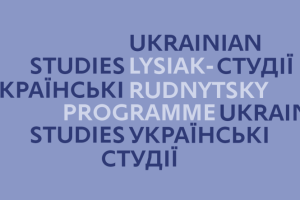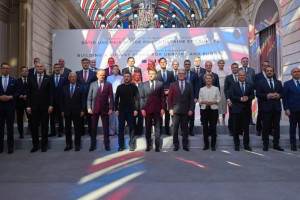The Hague forum debates conflict in Ukraine and EU's role as peace actor

ODU-HUMANITARIAN · November 1, 2019 – The crisis in eastern Ukraine, and the possible role of the European Union in bringing peace, took centre stage during a discussion in The Hague on October 30. The event, organised by Dutch NGO PAX for Peace and the Ukrainian Embassy, was co-hosted by OpenDoorUkraine.NL.
Professor Olexiy Haran of Kyiv Mohyla Academy gave a critical assessment of Volodymyr Zelensky’s approach to the Donbas crisis. The new president started with small steps: local military disengagement, and better communication between people on both sides.
But now the talk is about having free elections under Ukrainian law in the disputed territories, and according them a special status – the “Steinmeier formula” – and this raises a great number of uncertainties, notably on security. “Zelensky is moving in unknown waters, and it is not clear where his red lines are”, says Haran.
Moreover, foreign support for Ukraine seems to be eroding, with Trump and Macron warming up to Putin, the Russian North Stream 2 gas pipeline bypassing Ukraine, and Russia’s return in the Parliamentary Assembly of the Council of Europe. “That was a blow to Ukraine. It makes it hard to explain that the West is still behind us.”
Meanwhile, on the ground in Eastern Ukraine, PAX for Peace is working to build bridges between the populations of the warring sides, said programme officer Marieke Droogsma. The NGO is training “peace engineers” who help to create a culture of dialogue between parties on both sides of the divide. This also helps to strengthen social cohesion, making people more resilient to disinformation and other hybrid war tactics.
The conflict in the Donbas tends to push the dramatic situation in the annexed Crimean peninsula out of the public limelight, said Olexiy Starodubov of the Crimean Expert Centre. The human rights situation is dramatic, especially for the indigenous Crimean Tatar minority, and the area has turned into an economic black hole. Monitoring by international organisations could help to bolster civil society in Crimea. In the meantime, Starodubov wants sanctions to continue – if only as a political symbol of non-recognition of the Russian annexation.
The discussion then focused on what the EU could do to remedy in conflict situations such as Ukraine. “The EU is successful as a peace project, but does it also function as a peace actor beyond its external borders?” asked Jan Marinus Wiersma of the Netherlands Institute of International Relations Clingendael. “The Union relies on the soft power of money and diplomacy, among others in Ukraine and Georgia, but it lacks leadership,”
Robert Serry, chairman of UPEACE Centre The Hague, is pessimistic. Multilateralism is in decline, and the United Nations Security Council is finding it harder to stop Member States from using or condoning violence. “If the UNSC won’t function and NATO falls apart, then the EU will have to defend itself.”
Photo: Olexiy Starodubov (Crimean Expert Centre), Marieke Droogsma (PAX for Peace), Olexiy Haran (Kyiv Mohyla Academy) and Ketevan Chumbadze (Georgian Ministry of Foreign Affairs).
Source: Оpendoor Ukraine








